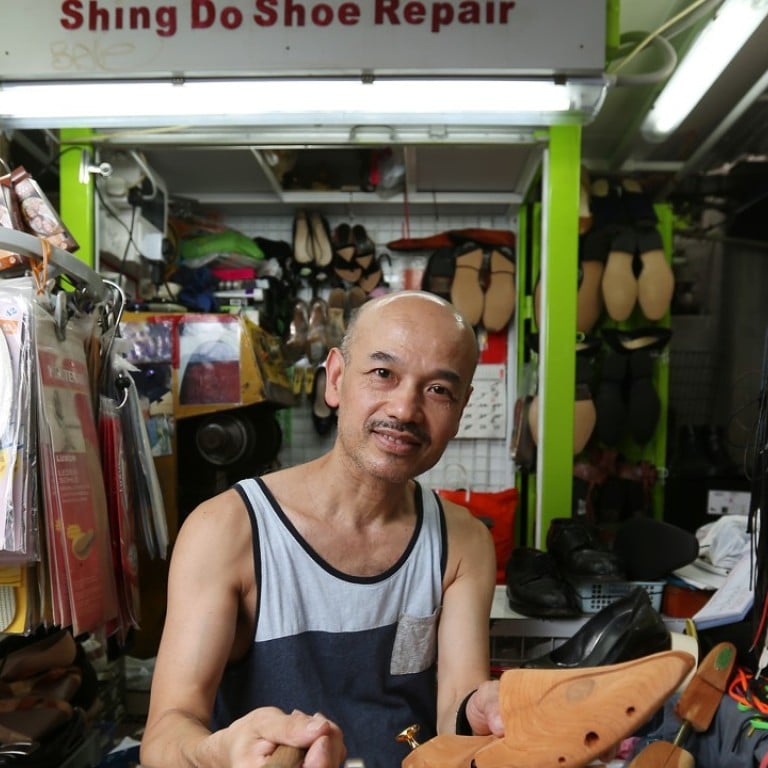
Hong Kong cobbler puts heart and sole into repairing shoes on his trusted 25-year-old machine
It has stayed with him for 25 years as he built core group of patrons, who rely on him to fix their designer shoes
Hong Kong cobbler Wong Yun-keung has been repairing shoes in the city for more than 25 years – using the very same machine he started out with.
The 52-year-old tradesman, who works with his wife Chan Suk-yee at their shop Shing Do Shoe Repair in Central, started out as an apprentice cobbler for another company, before eventually setting up his own business and employing his own staff.
With a stall close to Landmark luxury shopping mall, home to over a hundred designer brands, he often handles wealthy customers’ designer shoes worth tens of thousands of Hong Kong dollars.
And despite the years, he has yet to replace his manual shoe repair machine, though it has been repaired several times.
Speaking to City Weekend, he insisted it would be too expensive to use an electrical model, and that his stall was too small to house it anyway.
“Like me, this machine has worked for more than 25 years,” he said. “During that time, the motor of the machine broke down. But it was fortunate that I found a master who agreed to ... repair it. New machines consume a lot of electricity and they are too big; they’re not suitable for us.
“We’ve got used to the place here and my customers know it well. If we move to a bigger space, the rent … well, landlords in Hong Kong are not very friendly. It’d be difficult to stay on.”
Wong, one of the city’s last independent cobblers, avoids paying high rents by setting up his stall on government land on the Pedder Street concourse next to Central MTR station. He started his business with just one customer a day, but now has a core group of regular customers who trust him to repair some of their most valued possessions, such as a pair of coveted Jimmy Choo shoes.
Wong added that his shop was one of the rare few in the city which still accepted repair jobs “requiring screws and delicate craftsmanship” – meaning fixing the shoes by hand.
“We’d take orders that other shops won’t,” he says.
“We don’t see it as much trouble. Very few shops in Hong Kong would repair shoes with leather soles. It is because the soles have to be replaced and threaded again. Many procedures have to be made by hand. Some modern shops would feel [like it’s too much trouble], but we’d still take the order.”
Wong said he primarily wanted a job which would sustain him, but he did enjoy interactions with customers.
“I enjoy talking to my clients,” he said. “Some of them are very good. Some are very picky and demanding. Different customers have different demands. Sometimes when you have finished repairing a pair of shoes, some of them, especially foreign ones, are very friendly and will say: ‘Excellent!’ When they say ‘very good’, I feel happy. They’d then refer other people or their friends to use my service. Then I would think it is quite good. It is not that boring every day, after all.”
Although he can see the steady decline of his industry, Wong remains unfazed by how it might affect him personally, insisting he will continue to work for at least another decade.
“Fewer people have entered the industry, especially young people,” he said. “It is probably because even if you become a big master in this field, you won’t earn a lot. In Hong Kong, shoe repair is not a high-class industry. So it would not be the first choice for young people.
“But do I worry about my future? I don’t; I’m already in my 50s, I hope I can be in this trade until I’m in my 60s.”

